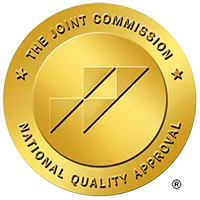Alcohol Use Disorder or
Alcohol Detox and Treatment
Detoxification, or “detox”, is the process of the human body medically stabilizing from drug and alcohol use. The purpose of our alcohol detox in Colorado is to safely manage withdrawal symptoms when someone stops taking drugs or alcohol. Consuming alcohol in the body continuously for an extended period creates a physical dependence to those chemicals.
Alcohol is one of the most widely used substances of abuse in the world. This is largely because it is one of a few socially acceptable and legal mind and mood altering substances. Because of this fact it is often hard to identify when someone is struggling with an alcohol problem. Drinking problems or alcohol abuse are easily hidden or overlooked. The nature of Alcohol use disorder is progressive. This means it gets worse over time and can easily progress to a state of unmanageability.
At Red Rock Recovery Center, we understand the effects and situations caused by alcoholism or alcohol abuse can look different for everyone. Every individual comes from different backgrounds, has diverse situations and stressors in their life, and has different needs depending where they are in their alcohol addiction. That’s why we’re committed to helping those with an alcohol use disorder overcome their drinking problem and achieve a strong foundation in recovery. With the support of our experienced clinical and medical teams, we know that recovery is possible for each individual who seeks our help.
Start Your Recovery Journey
Take the first step toward a healthier, substance-free life with our detox program.
Symptoms of Alcohol Misuse
If an alcohol misuse or abuse disorder is suspected or present, please reach out to someone on our team for guidance, education, and support. Red Rock Recovery offers various programs and services to help you or your loved one navigate this issue. The symptoms of an alcohol use disorder are as follows, according to the DSM-5. If you or a loved one have two or more of these symptoms, it could indicate a severe drinking problem.
- Alcohol is often taken in larger amounts or over a longer period of time than was intended
- There is a persistent desire or unsuccessful efforts to cut down or control alcohol use
- A great deal of time is spent in activities necessary to obtain alcohol, use alcohol, or recover from its effects
- Frequent cravings or a strong desire to drink
- Failure to fulfill important role obligations at work, school or home due to recurring alcohol use
- Continued alcohol use despite persistent personal or social problems caused or exacerbated by drinking
- Recurrent alcohol use in physically hazardous or dangerous situations
- Ongoing alcohol use despite knowledge of persistent or recurrent health problems likely to have been caused or exacerbated by alcohol use
- High tolerance for alcohol use
- Withdrawals experienced when not drinking
Side Effects of Alcohol Abuse
Alcohol is a legal substance, but abusing it can have long-term effects on your health and well-being. Alcohol can damage your body, and many alcoholics struggle with a number of mental, physical and emotional problems as a result of their drinking. Liver damage, heart problems, brain or memory impairment are some of the more well-known consequences of alcohol abuse, but other effects of heavy drinking include:
- High blood pressure and heart disease
- Increased risk of cancer
- Weakened immune system
- Stomach ulcers and digestive issues
- Pancreatitis
- Nerve damage
- Alcohol-induced dementia (“wet brain”)
- Injuries due to falls, drunk driving, burns, etc.
- Mental health problems (depression, anxiety, etc.)
- Social and legal problems
- Alcohol addiction or dependence
Many people do not identify their drinking problem until it is too late. These and many other medical issues could transpire or persist without proper clinical and medical treatment. Call today to discuss alcohol rehab options with a trusted professional.




